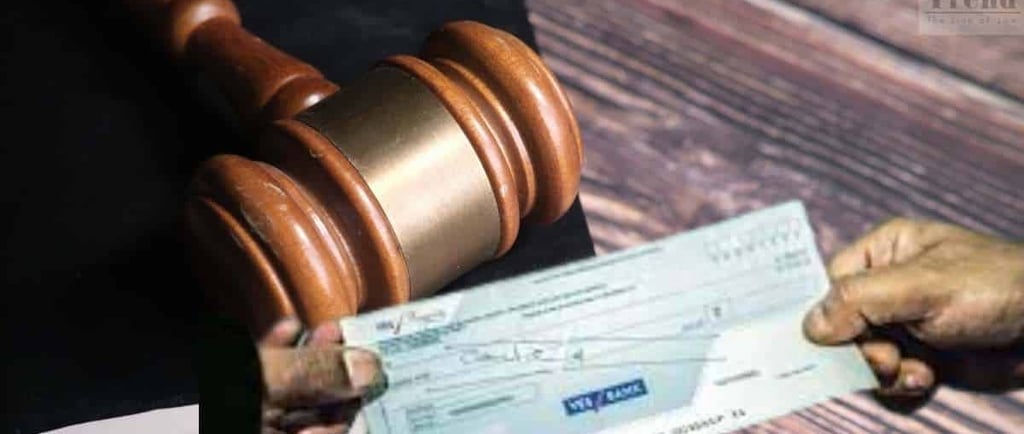AdVocate harshit Sachar | chamber no: 617 | district courts ludhiana | 2817 gurdev nagar ludhiana | ✆+91 7889228369
Cheque Bounce Cases
Understand the legal process and remedies available when a cheque gets dishonoured.
Team Sachar Law Firm
7/31/20251 min read


Cheque bounce is a criminal offence under Section 138 of the Negotiable Instruments Act, 1881. If someone issues a cheque that gets dishonoured due to insufficient funds, you have the right to take legal action.
When is it a Legal Offence?
Cheque was issued towards a legal liability.
Cheque gets dishonoured.
Payee sends a written demand notice within 30 days.
Drawer fails to pay within 15 days of receiving notice.
Legal Steps:
Send legal notice to drawer.
Wait 15 days.
If unpaid, file a criminal complaint within one month.
Court may summon the accused.
Offender can face jail up to 2 years or fine or both.
Defences Available to Accused:
No legal liability
Invalid notice
Time-barred cheque
Forgery or misuse
The case is bailable, compoundable, and non-cognizable.
Civil Remedies:
A parallel civil suit for recovery of cheque amount can also be filed.
Legally Enforceable Debt
A crucial element in cheque bounce cases is the presence of a legally enforceable debt or liability. This means the cheque must have been issued to discharge an existing debt or obligation that is legally recognized. If the cheque was given as a gift, donation, or for a future loan not yet due, the provisions of Section 138 of the Negotiable Instruments Act may not apply. Courts require clear evidence that the cheque was issued in return for a legitimate financial liability. Understanding this distinction is vital for both complainants and accused to assess the strength of their case.
Services
Sachar Law Firm – Advocate, Lawyer, Attorney & Solicitor Services in India | Ludhiana, Punjab.
Expert legal advice across various practice areas - Civil, Criminal, Divorce and Matrimonial, Consumer and Corporate laws, Bail Matters, Property Contract Disputes, Insurance claim disputes, cyber Crime cases, Cheque bounce, Family Divisions, Arbitration. Bail Matters, Electricity Board Cases, Appeals before Session court Ludhiana, Marriage certificate, Court Marriage, Succession Certificate Accident Claim (MACT), NRI Legal Matters, NRI Property Matters.
“Get in Touch with Sachar Law Firm”
Quick Links
© 2025. All rights reserved.
Advocate Harshit SACHAR
Legal Blog
2817, 1st Floor , Gurdev Nagar, Ludhiana, Punjab -141001
Address: Office Cum Res:
Corporate Liquidation and Recovery Litigation
☎️ 0161 7965410
